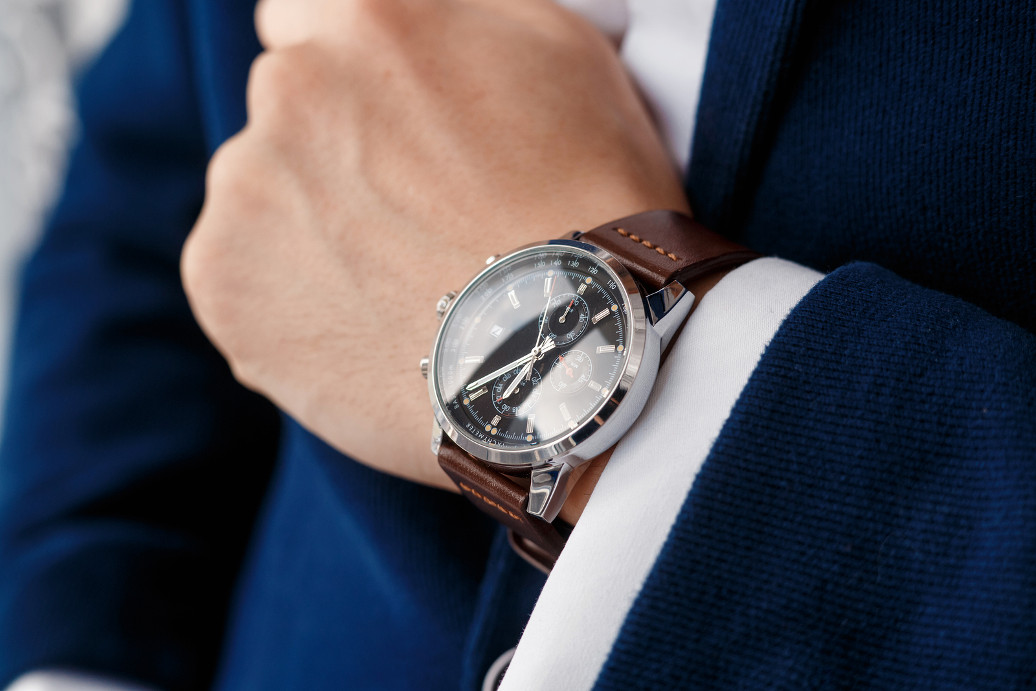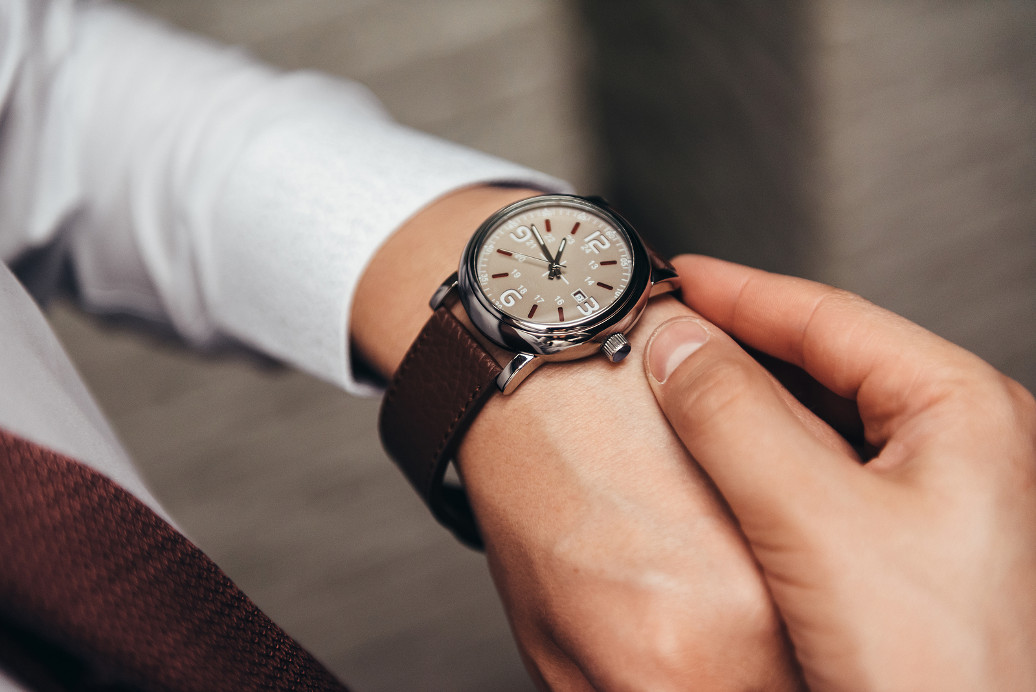Christmas is a wonderful time of year. Aside from the endless opportunities to eat your bodyweight in turkey and cranberry sauce, and tailor your home decor to an extravagant Winter Wonderland theme, this annual season of snow (we hope!) and fun is the perfect occasion to spend some quality moments with your loved ones.
With the time to embark on the Christmas gift shopping well and truly upon us, you might find yourself searching for a little extra something for that special man in your life, and what better gift than a luxury watch? Not only is this gift a stylish, long-lasting, useful and relatively inexpensive one – if you are looking for the best watches under $1000 – but it may ultimately turn into a pretty great long-term investment, just look at the continued appreciation of the 1953 Rolex Submariner and 1976 Patek Philippe Nautilus watches, even today.
To help you make the best decision when buying your luxury men’s watch this Christmas, follow these top tips before finalising your purchase.

Consider the materials
A luxury watch can be crafted from a wide range of materials, all of which can impact the overall style and practicality of the piece, so careful attention must be paid to ensure you are selecting a watch that has the right materials for the recipient. You should take into account which materials offer the most durability, which are scratch-resistant, which are water-proof if need be, which are lightweight, and which are most likely to stand the test of time.
Traditionally, luxury timepieces were crafted in solid gold and although this is still the metal of choice for luxury watches, many new materials have since been introduced that offer buyers a range of choices. Stainless steel is a very commonly used material for its lightweight, malleable and highly resistant properties, as well as its incredible polished finish; titanium is an even more lightweight material with the highest strength-to-weight ratio as well as being hypoallergenic and extremely durable; and there are also a range of other modern materials available including ceramics, carbon fibre and diamond-like carbon which offer scratch-resistant, strong and contemporary qualities.
Know your desired complications
A somewhat misleading term, “complications” actually refers to the functions of the watch. In addition to the simple display of hours, minutes and seconds, your watch can feature an endless amount of added complications to simplify or enhance your every day life. From simple complications such as a day–date, chronographs, GMT and world timers, and a moonphase, to more advanced complications such as a perpetual calendar, tourbillon and minute repeater, watches with added functions are often highly sought after due to the complexity, precision and skill required to make such a unique piece. Whether its for aesthetic purposes, or for improved functionality suited to the person’s lifestyle, knowing what complications you desire will help make the selection process easier.

Think about the movement
A watch movement, also known as a “calibre”, is the working engine behind the watch; all timekeeping functions and complications are driven entirely by this internal mechanism. There are two types of watch movement for you to chose from: quartz, which are battery operated, and mechanical, which run on an intricate series of tiny cogs and springs working together.
Mechanical calibres often hold a much greater value over quartz watches as they are a clear display of technical craftsmanship and engineering, therefore most luxury watches these days are mechanically operated. Simply put, the watch is either wound by hand, or wound automatically whilst on the wrist, and the energy from this action is stored in a spring which is then transferred through a series of cogs and gears and regularly released to power the watch. Although a mechanical watch does require regular adjustments and servicing, if it is well taken care of it can last for decades, if not centuries.
When buying a luxury watch, you should consider whether the movement has been made in-house by manufactures, or whether it has been sourced from third parties. Often watches made by manufactures demand greater prices as they are highly sought after and frequently assembled entirely by hand.

Research the history and reputation
The brand and reputation of your watch is a massively important factor to be considered. The Swiss have long fought to maintain their reputation for exceptionally produced timepieces, you need only look at the brands of Rolex, Breitling, Omega, Patek Phillipe and TAGHeuer to see proof. Of course, there are other, non-Swiss brands that are equally as esteemed as the afore mentioned such as the French brand, Cartier, or the Danish brand, Andersen Genève. Choosing models from brands with a long history and excellent reputation will ensure your chosen watch is of the highest quality and craftsmanship whilst also offering you excellent prestige and exclusivity.
Recognise their personal style
Whoever the watch might be for, it is important that you take into account their personal taste, preferences and style. Although there are many amazing watches out there, what might be the perfect fit for one person will not always fit the next, some may like a contemporary, modern watch with all the gadgets and gizmos, whilst others might prefer a second-hand vintage classic with a little extra character. Recognise what your man likes and looks for in his accessories and use that to guide you.






















